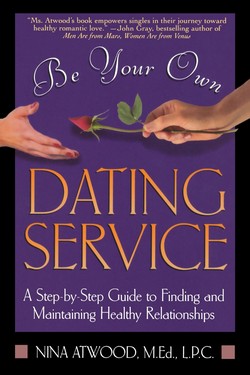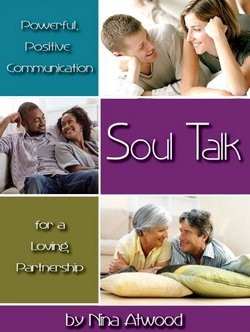How Can I Tell When Someone Else Is Lying?
By Nina Atwood
By Nina Atwood
I have not been dating much in the last few years, due to being hurt too many times in past relationships, mainly by infidelity on the part of my past partners. I thought that if I was straight forward and honest that the other person would be also. Now I want to learn to detect early on the signs that I might have missed in the past. The problem I’m having now is not being able to open up. With one recent date, I was totally speechless and tied up inside. What can I do? – Jeff
Like parts of our physical anatomy, our hearts can be broken, and yours sounds severely bruised, at the least. You have been disappointed and hurt, and now you are struggling with the issues of trust and discernment.
One re-frame that I would suggest is to change your perception about how honesty works. My telling the truth actually has very little to do with someone else’s ability to return the same. Being honest is a choice that we are all faced with on a day-to-day basis. No one, by the way, is 100% honest every single day. We all fudge a little because we’re human and we want to avoid hurting someone else’s feelings or rocking the boat. Major lies like infidelity are something else entirely. That kind of lie damages the integrity of the person telling it, and does great harm to their relationships.
Regarding the ability to trust: that is something that you carry inside of you and which must be healed in order for you to be close and open up to women again. Regarding discernment, it sounds like you’re working on that one, meaning that you are learning how to pay attention to your own internal signals that help you sense when another person is being straight with you or is not.
One of my clients once dubbed this the “bull—- detector.” We all have one, but we must turn it on and calibrate it properly in order to get the full benefit. We turn it on by learning to listen not just with our ears but with our guts. This is a kind of listening that takes place on a physiological level, much like the way a lie detector works. When a person tells a deliberate falsehood, they send an invisible, yet real, signal that can actually be felt by the listener. Most of us refer to this experience as getting “that funny feeling that something’s just not quite right.”
We calibrate our own internal “lie detector” by practicing openness, honesty, and integrity in day-to-day life. Most importantly, the calibrating begins with self: I choose to hear and honor my own personal truths about my life, then to live according to that. When my signals are straight and true, I feel it when someone returns a crooked signal. When I know myself, open up, and practice being straight forward, I simply don’t “click” with those who do not.
The way this works in dating is to practice the following things:
- Be yourself. Never try to be someone you’re not in order to attract someone; you’ll end up with someone who doesn’t love you for who you are.
- Be open, in stages. Get comfortable with your own history so that you can talk about it openly. Begin with the Cliff Notes version and deepen that over time as trust develops.
- Do your healing work so that you can open your heart and trust again.
- Listen with your ears, with your gut, and with your heart. Listen for the words that are spoken, and for the ones that are not. Trust your own intuition.
- When in doubt, check it out! Ask if you’re not clear.
- Be bold in initiating important conversations with the people you date (see “Date Lines”).
Copyright ©1999 Nina Atwood, All Rights Reserved
Reprints Only by Written Permission of Nina Atwood
Entry Filed under: Dating





